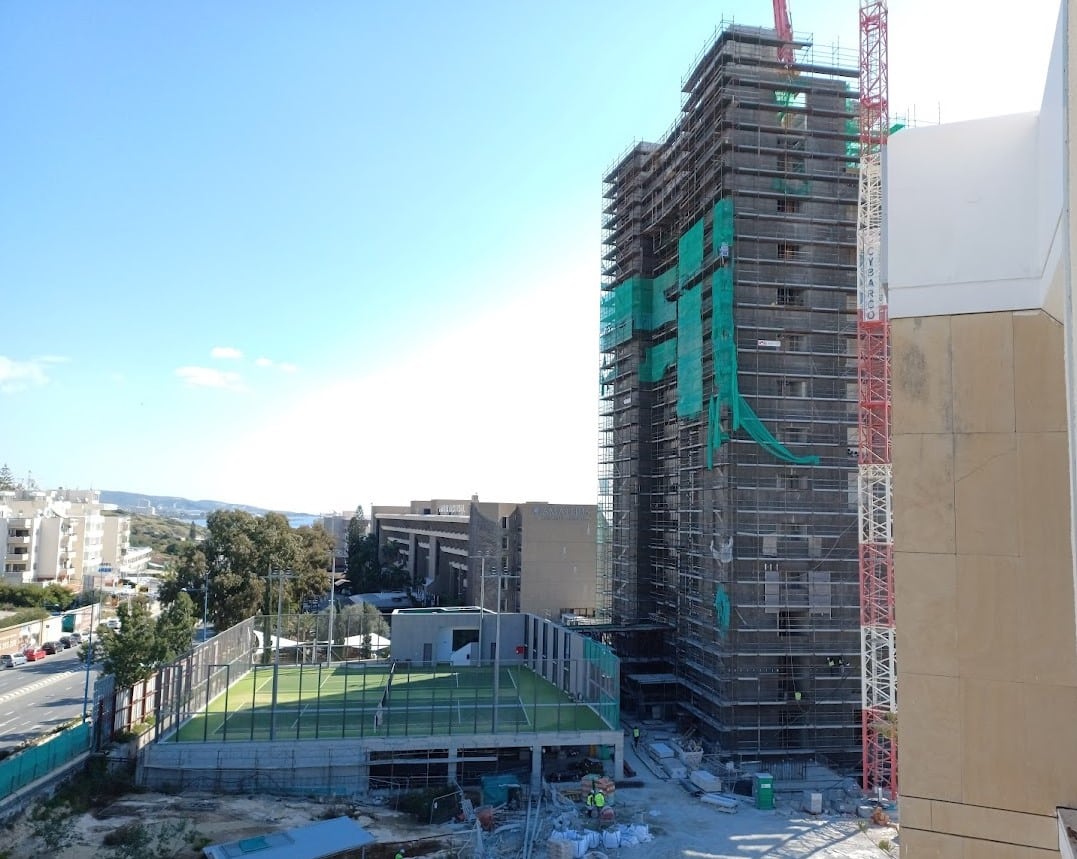Rising interest rates are causing shocks in the Cypriot real estate sector, with the government being called to intervene to prevent any long-term consequences, Council for Registration of Real Estate Agents president Marinos Kineyirou said on Friday.
“Rising inflation has led central banks to take action to contain and reduce it and in doing so, they make frequent increases in their interest rates, which are then transferred through the banks to the interest rates on the loans,” Kineyirou said.
“Obviously, the aim of this so-called aggressive monetary policy is to bring down prices by triggering a reduction in demand, but things are not so simple, and it was no coincidence that we have been reporting on significant challenges on the horizon for the real estate and land development sector since the last summer,” he added.

Council for Registration of Real Estate Agents president Marinos Kineyirou
In terms of lenders, the council president explained that initially, the significant increase in the cost of borrowing, following the rise in lending rates, combined with the soaring cost of construction materials, directly affected the plans of those considering building or buying houses or apartments.
“This is a phenomenon which has already begun to show its teeth in the field as many people are now having second thoughts,” he said.
“Normally, the next solution for housing for those who move away from the housing market is renting,” he added, referencing the sharp rise in rental costs following the increased demand for such properties.
During the second year of this phenomenon, Kineyirou continued, there is another major source of risk approaching the real estate sector, which is also related to the rise in interest rates, but this time is related to deposits.
Some banks have already announced their intention to proceed with increases in their deposit rates later this year.
“And where is the problem with this someone will ask. Isn’t it natural for depositors to be paid as well since the banks’ interest margin is improving significantly? Obviously, it is normal and legitimate for this to happen but it is expected that it will also have a negative impact on real estate,” Kineyirou said.
He noted that with investors being able to get a return from their money in the bank, this will then discourage them from investing in other areas, such as real estate.
“So we may see a decrease in the number of apartment buildings and residential complexes being constructed or acquired by investors to be made available for rent,” he said.
“If we summarize the above two risks for real estate, which stem from the rise in interest rates, we will see that they create two big problems. The first is the stagnation in the real estate market with all that this entails for professionals in the sector and, by extension, for the state’s revenues. The second problem has to do with rents,” he added.
In this regard, Kineyirou said that as the council has previously noted, increased demand contributes to the sharp increase in rental costs.
“Without any desire for scaremongering, I point out the significant probability that the problem of high rent prices will be significantly exacerbated since people who cannot borrow will turn to rent, further fueling demand, while those who have the necessary funds will not invest in real estate, resulting in decreased supply,” Kineyirou stressed.
He also mentioned that the already elevated interest in short-term rental properties across Cyprus’ tourist areas makes the problem even worse since this results in more houses and apartments becoming unavailable for local residents.
“As the Council for Registration of Real Estate Agents, we have previously pointed out these risks in a timely manner, cautioning about the dangers they pose. We are doing it again now,” Kineyirou said.
“It is important for the new government to address the issues related to the real estate market and land development in order to prevent unpleasant situations, which will burden the entire economy,” he added.
“We are therefore at its disposal to help boost investor confidence and encourage them to channel capital into the real estate and land development sector. This will increase supply, increase competition in terms of prices, create new jobs, as well as generate revenue for the state,” he concluded.







Click here to change your cookie preferences